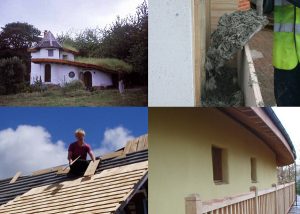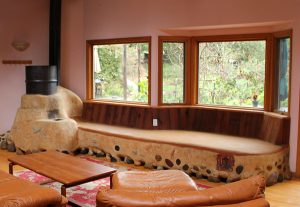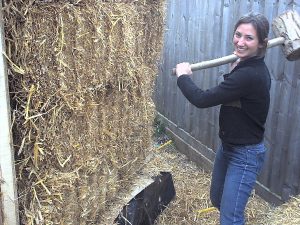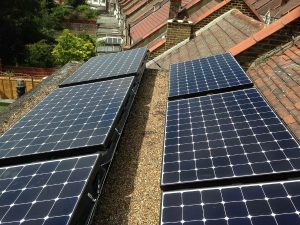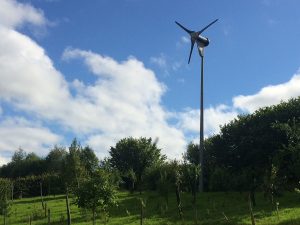First – apologies to anyone trying to use the comments sections at the bottom of topic introductions and blog articles over the last couple of months.
They haven’t been working properly – huge amounts of spam meant that we had to redirect comments into a moderation queue, to be approved before they appear on the site – and this redirect had a bit of a glitch. More importantly, our director, Dave Darby, has been ill, and so several issues have had to take a back seat. He’s much better now, and the comments problem has been fixed. We’ve also taken on several new people to work on publishing, online courses, website content, blogging, fundraising etc. Over to Dave for more:
—————————–
Hi all. On April 7th this year, I had a stroke – by far the weirdest thing that’s ever happened to me. No pain, just experiences right up there with alien abduction (I imagine) in terms of strangeness. Before that, I’d never had anything wrong with me – never broken a bone, never had a serious illness, never spent a night in hospital, I exercise, eat well, and consider myself really fit and healthy. They don’t know what caused it – but suggested that it might have been stress caused by working too many hours and trying to do too much. So let that be a warning!
Thanks to all of you who have sent good wishes. I’m much better now, and have taken time out to read and reflect.
Reflections on the current system
Lowimpact has been around since 2001 – we’ve run hands-on courses, attended events, provided tons of free information on the website, interviewed people, blogged, published books, produced online courses, and for the last few years, we’ve been singing the praises of mutual credit as a way to change the money system. We’ve always been about ways that individuals can live more sustainably, and we’ll continue to promote behaviour change. But humanity is in a mess, and heading in a very dangerous direction. Behaviour change won’t be enough – we need system change too. But to what? And how? What could be a viable alternative to the status quo? Plenty of environmental organisations cover behaviour change, but not system change – maybe because they think it will cut off avenues of funding, or that it will alienate their visitors, or they just don’t know how it could happen (or, of course, they don’t want system change).
But, I think it would be a good idea to organise ourselves, and provide everything we need, in ways that don’t funnel wealth and power to a tiny minority – wouldn’t it? Look what’s happened before when power has been highly concentrated. It’s never turned out well. And what’s happening today isn’t brilliant either. The status quo isn’t democratic or sustainable.
We can’t vote this problem away, and we can’t overthrow the minority – they’re too powerful. And existing ‘non-extractive’ institutions – co-ops and other mutuals, like building societies, although wonderful, don’t seem to be able to achieve longevity, or the ability to scale. The Co-op Bank, and most of the building societies (or ‘savings and loans’ associations in the States), have been swallowed by capitalist institutions.
You often hear talk of building a new economy – but how, exactly? Not superficially, in a nonsensical and cynical ‘corporate social responsibility’ sort of way, but fundamentally different in the way that it operates at the core. C-M-C rather than M-C-M’ – in other words, an economy in which people work for an exchange medium to purchase the results of other people’s work, rather than investing in the work of others, in order to make more money than they started with.
I think the most exciting developments are around building the ‘Commons’ economy – in which the essentials of life (housing, energy, food, land, and of course, credit) are held in common. But how do we implement it, in ways that can’t be prevented by the state or bought out by capitalists?
Conclusions
I think we can build the commons economy using new tools developed by Dil Green, Matthew Slater and Chris Cook: mutual credit, Credit Commons and use-credit obligations. We’re going to be adding new topic introductions to the site, as well as blog articles over the coming weeks, that explain these concepts (and more) in more detail.
I’ve been searching for the key to help us change direction all my adult life. I’ve read and heard about many candidates, ranging from the mis-named ‘sharing’ economy, technologies such as artificial intelligence and genetic modification, new political parties and mass movements, new ways of organising co-operatively, and of course, blockchain and crypto. But for me, mutual credit and use-credit obligations make me more optimistic that we can achieve the necessary change than anything else I’ve ever come across.
We have to build alternative tools and infrastructure – and when I say ‘we’, I mean people who understand the need to do it, and who actually care about what happens to humans – a ‘vanguard’, if you like.
Then we have to offer those tools and infrastructure to the mainstream – both middle-class and working-class mainstreams – in ways that bring immediate benefits, without the need for altruism. This last part is the holy grail, that will cause viral growth.
I’d like us to throw our collective weight behind the ideas of Dil, Matthew and Chris – to help build a commons package built around mutual credit, use-credit obligations and Credit Commons. I’ll cover those in more detail in future articles, including how they can be used to build commons in all sectors of the economy, from housing and care to energy and land.
What happens next?
- Website improvements: we’re building a jobs & events board; increasing the size of the directory and adding a mutual credit network; producing more books and online courses; and adding more practical topics and specialist advisors.
- We’ll be focusing more on use-credit obligations, mutual credit and Credit Commons: adding topic introductions; publishing more articles; interviewing people building commons tools and infrastructure; and producing a book and movie-length documentary (more details next week).
- We’re working with the Credit Commons Society, and we’re looking for people – coders, marketers, fundraisers, networkers, or people who would like to talk with other local people about building commons institutions in their communities. Let us know if you’re interested.
- Next week: more about Lowimpact’s role and future activities, with lists of upcoming articles and new topic introductions.








